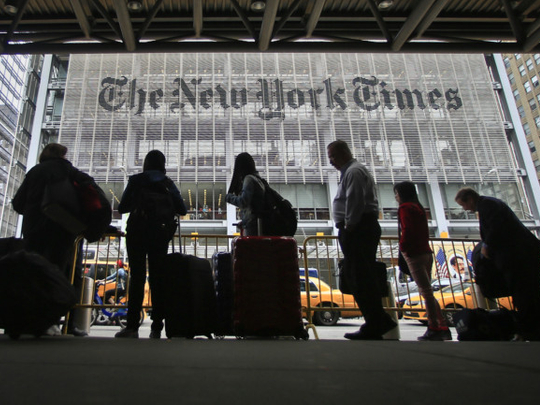
Dubai: Print journalists can take heart — digital media won’t kill your job anytime soon. But life has just got a bit tougher for you.
“In the digital world, it’s easier to distort, replicate and repurpose content. Is that good or bad? The consumer will ultimately decide what’s good or bad,” said Marcel Fenez, global leader for entertainment and media practice at PwC, while addressing media investors in Dubai. “What people want, is consistent, high-quality.
“He [consumer] tends to get drawn to quality. Social media is great. But if you want good analyses or editorial content, you go to brands you trust. So, there’s a business case for quality content. Big content providers are not dying any time soon, but they have to more flexible in the way that they package and deliver those services.”
He agrees that no one seems interested in paying for commoditised content — especially news — amid an explosion of social media. But they would pay for “enhanced content experiences”.
While digital has lowered entry barriers for newcomers and spawned more competition, it has also led to greater fragmentation. This is why, Fenez says, professional journalists and editors are still needed to filter what’s out there. “It’s more likely that in 10 years, we’re not going to talk about social or digital,” said Fenez, who set up the PwC Hong Kong Entertainment, Media and Communications group in 1995. “It will be just plain media. The question is: ‘How do we consume, where do we do it and who do we do it with?’
“There’s so much information overload, so consumers with limited time will need to have some sort of filtering. It’s not just a simple search function, but filtering through engagement with trusted brands of content providers.”
Fenez said it’s no use referring to digital content as if it’s a separate entity. “Consumers don’t really differentiate. Whether it’s an app, a programme or a game that allows him to play with a friend next to him or halfway across the world, the key differentiator is the ability to add experience to the content. They key is interactivity, sharing, playing.”
Keybroker Group, an online marketing agency, reckons that the global media market stood about $500 billion in 2006, but online advertising reached $100 billion in 2012. “The opportunity for making money off content may follow certain business models,” Fenez said. “At a simple level, the old way is either subscription-based or advertising funded. Or pay-per use.”












